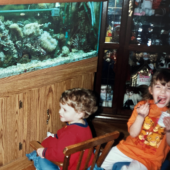
Abstract: Gaining a better understanding of human behavior change is vital to encouraging individuals to adopt an environmentally sustainable lifestyle and to the long-term goal of preserving nature. To explore how life experiences lead to the adoption of environmentally sustainable behaviors, this author turned to autoethnography. Through this reflective method, the author examines their development of environmental identity and their experiences with nature, as they relate to major concepts within the field of conservation psychology, such as ecological literacy, Theory of Planned Behavior, and connection to nature. Leading concepts concerning environmental identity in the conservation psychology literature suggest a very specific pathway for developing environmental identity, and thus pro-environmental behaviors, including experience in nature from a young age, the presence of an environmental mentor, and access to environmental literature. However, the author reveals that there may be other pathways to development of environmental identity, which include virtual environmental mentors (e.g., nature TV show hosts), environmental media (e.g., magazines, documentaries, and internet sources), and other methods of driving emotional connection to nature (e.g., sense of place). Alongside the author, the reader will have the opportunity to consider their environmental experiences and factors influencing their environmental identity, in relation to these major concepts within conservation psychology.
Continue Reading